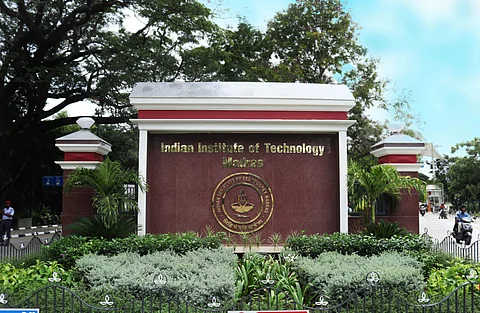

Taking over from volunteers, who ran the COVID-19 repository for the last one and a half years, the Indian Institute of Technology Madras, the Centre for Networked Intelligence at the Indian Institute of Science (IISc) and the Indian Statistical Institute (ISI) are collaborating with Semantic Web India, a private technology firm based in Bengaluru, to continue the efforts of the critical COVID-19 data website. The new public repository is being hosted at incovid19.org.
The previous website, covid19india.org, offered a comprehensive view on the pandemic across India by providing data on confirmed cases, active and recovered cases, tests and fatalities. The portal also recently started showing vaccination administration status for single-dose and fully vaccinated.
The website, which till now was run by volunteers based on a crowd-sourcing model, provided valuable data to the public as well as researchers studying the pandemic. The organisers recently announced that they would stop their operations after October 31.
This new initiative of these academic institutions and Semantic Web India will now continue updating the data from November 1 and make it available at incovid19.org.
Explaining this initiative, Prof V Kamakoti, Associate Dean (Industrial Consultancy and Sponsored Research), IIT Madras, said, “covid19india.org was providing a valuable service by making this data publicly available in one place, which is important to understand the pandemic. It benefitted the general public and researchers studying the COVID-19 spread. Factoring these aspects, the three institutions are collaborating with Semantic Web India to provide similar data, with some added improvements.”
Further, Prof Kamakoti said, “The data on COVID-19 is being put out in the public domain by various government entities. This initiative collates all this data and provides a one-stop-shop in a standardised format for the benefit of researchers and the general public.” The granularity of the data points of covid19india.org extended to the districts of most states. The historical data must be preserved in order to support future studies on the pandemic, he added.
Speaking about this initiative, Prof Siva Athreya, ISI, Bengaluru, said, “covid19india.org has been available since the pandemic started and has tracked the pandemic across geographies in India. While the website will remain active, they would not be updating the data. IIT Madras, IISc and ISI have joined hands with Semantic Web India to continue updating the data and making it available at a new public repository hosted at incovid19.org.”
This new initiative would ensure the availability of data on COVID-19 pertaining to confirmed cases, active, recovered, deceased and tested for all the states and Union Territories of India in an automated and robust manner until March 2022. Further, the consolidated data will be made available to the general audience through a public repository with appropriate APIs (application programming interface) matching those currently available at covid19india.org to ensure the least disruption to applications and consumers of information.
Elaborating on the key objectives of this initiative, Dr Asha Subramanian, Founder and CEO, Semantic Web India, said, “We are trying to make the process as automated as possible, to provide data continuity at the state/district level wherever possible, using published sources at state government portals.”
Subramanian added, “We also wanted to harness the wealth of information available on the portal for the last 16 months, to not only make it a repository but to bring in some value addition by enabling comparison of historical data. This includes insightful analysis such as comparative studies of various states/districts with similar population demographics and their performance on various parameters including first, second wave and vaccination coverage.”
The new portal will continue the efforts of the current portal with historical and newly collated data from diverse sources. Beyond this, the project also envisages the creation of a semantic layer on the data to provide enhanced search and analysis.
Further, Dr Deepayan Sarkar, Associate Professor, Theoretical Statistics and Mathematics Unit, ISI, Delhi, said, “From the perspective of researchers who are working with COVID-19 data, it is important that data continue to be available going forward. The goal is to continue collecting the data and making historical data available in a manner that lets researchers keep using their existing workflows with minimal disruption."
Prof Rajesh Sundaresan, Dean, Division of Electrical, Electronics, and Computer Sciences and a professor at the Department of Electrical Communication Engineering, IISc, Bengaluru, said, “This new initiative would ensure that important data related to the COVID-19 pandemic is vetted, standardised, made machine-readable and available on a single platform that the public, epidemiologists and policymakers could continue to rely on.”
